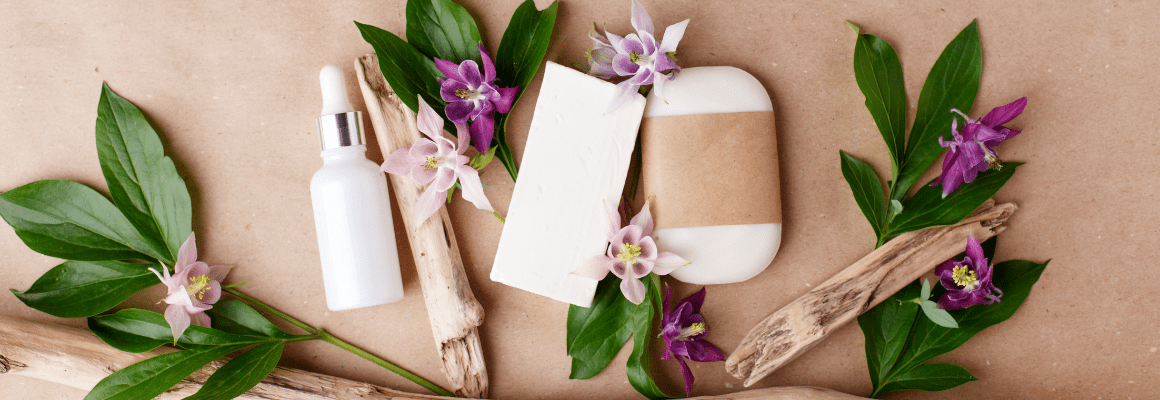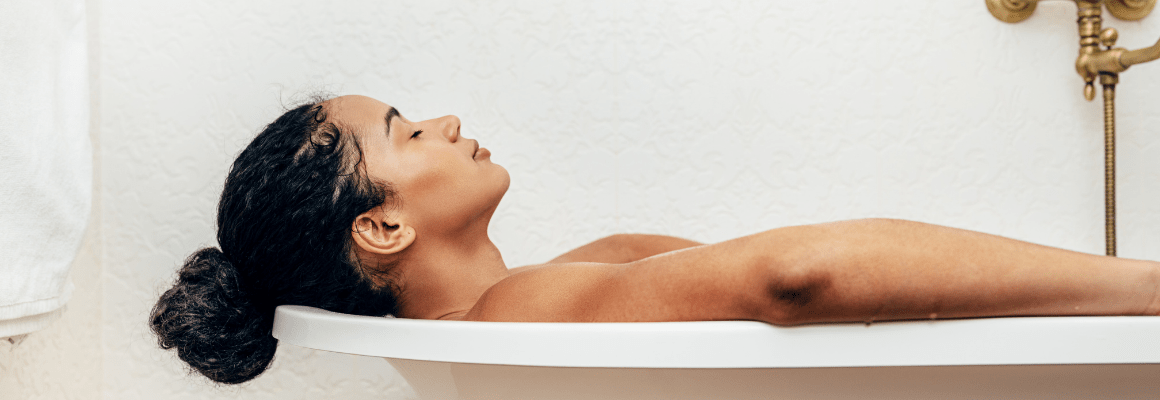What exactly is pruritus? In simplest terms, it’s itchy skin. It’s the unpleasant and uncomfortable sensation that makes you want to scratch yourself raw. Many people suffer from itchy skin at some point in their lives for a variety of different reasons. Others may have a medical condition like eczema or psoriasis. While others may be suffering from hives, dry skin, or a poison ivy rash. And some people may be suffering from an allergic reaction or seasonal allergies.
No matter the cause of itchiness, dealing with pruritus is never fun. The irritating sensation can make it difficult to concentrate at work or school. It can be distracting when you’re trying to do everyday activities. It can be disruptive when you’re trying to sleep. Many people note that their itchy skin feels worse at night! The struggle to get a good night’s sleep can lead to long-term negative consequences for adults and children. These damaging effects can include learning disabilities, impulsivity, daytime behavioral problems, and higher rates of fatigue and daytime sleepiness.
The good news is that dry skin and itchiness are treatable with a combination of lifestyle changes and natural remedies. In this post, we’ll describe the possible causes of itchy skin and what you can do about it. Read on to discover how to ease discomfort and relieve itchiness with our favorite natural treatment options.
Common Causes of Dry and Itchy Skin
Are you scratching relentlessly at your skin? Are you unable to concentrate at work or school because of the strong urge to itch? Do you sometimes wake up with blood on your bed sheets or pajamas because you scratched yourself raw during the night?
Although there are several potential causes of itchy skin, the problem usually stems from having dry skin. While some people are born with naturally dry skin, many people notice that dry skin develops or is exacerbated under certain conditions. For example, you may notice that your skin feels drier – and itchier! – during the winter when humidity levels are lower, and temperatures are cooler. This is because colder temperatures eliminate moisture from the skin.
Another possible cause is age. As we age, our pores naturally produce less oil. According to statistics, 50 percent of adults older than 40 years old suffer from dry skin. Therefore, itchy skin is more common in the elderly than it is in the young. Pregnant women are also more likely to deal with dry skin because of all the hormone changes. Because the skin has to stretch to make room for a growing baby, the skin naturally loses elasticity and moisture. That’s why many pregnant women notice dry skin on their stomach areas. However, they may also develop dry patches on other body parts, including the arms, thighs, and breasts.
Finally, people who work in jobs that require prolonged exposure to water are also more at risk for developing dry skin and subsequent itchiness. This is because water, especially hot water, tends to dry out the skin and strip it of its protective oils. These jobs include catering, nursing, and hairdressing.
Although dry skin is associated with eczema or psoriasis, dry skin is usually a temporary problem that can be relieved with natural moisturizers and lifestyle changes.
Dealing with Allergies and Itchy Skin
If you’ve ever suffered from allergies, you’ll know firsthand that an allergy can lead to itchy skin. Sadly, many of the triggers that can lead to allergies are everyday household products that you likely encounter daily. These include things like zippers, cleaning supplies, cell phones, jewelry, and beauty products. An itchy rash can result after the skin is exposed to an irritating substance or the chemicals and toxins found in them.
Seasonal allergies, otherwise known as hay fever, can also cause itchy skin. You may be most familiar with seasonal allergies in the spring due to an increase in pollen. When suffering from these seasonal allergies, the body releases a neurotransmitter called histamine. This causes blood vessels to dilate, which can cause your skin to itch. It can also pave the way for a rash to develop, such as hives or eczema.
The best way to avoid seasonal allergies is to avoid the allergen. It’s impossible to spend the whole spring season locked indoors, but you can certainly reduce your exposure. We recommend planning your outdoor activities when pollen counts are lower. The best time to go outside and take advantage of the spring weather is after a good fall of rain. We also recommend drinking plenty of water and delegating gardening chores like lawn mowing and weed pulling.
Can Hives Cause Itchy Skin?
Yes, absolutely! But before we get into that, let’s make sure we understand what hives are. Hives are red, raised areas of the skin. They form when the body releases a chemical called histamine in response to an allergic reaction. Hives can appear anywhere on the body. They often occur in clusters of swollen welts. Hives range in size and may disappear and reappear within short periods.
Hives are a pretty standard allergy attack—an estimated 20% of the population suffering from hives at least once in their lives. While the itching caused by hives can be severe, the rash can also sting and be painful. Most of the time, hives are caused by an allergy to medication or food. They can also develop because of an irritant in the environment.
Eczema and Itchy Skin
Eczema is an inflammatory skin condition that usually develops in childhood and persists throughout adult life. It’s characterized by a red rash that can appear anywhere on the body. Common areas include the arms, legs, chest, stomach, and even creases of elbows and knees. Common signs and symptoms of eczema include dryness, flakiness, scaliness, and of course, itchiness. Many people also note that their skin develops a thick, leathery texture. This tends to happen if persistent scratching occurs over long periods.
The exact cause of eczema is unknown, but research suggests it’s linked to a combination of environmental and genetic factors. Common causes include stress, sweat, irritating fabrics like polyester and wool, chemicals found in beauty products, and even the food you eat. People with eczema also suffer from a damaged skin barrier that has trouble retaining moisture. This is what leads to chronically dry skin and the associated itchiness.
Natural Treatments for Itchy and Dry Skin
One of the best ways to combat dry skin is to apply a natural moisturizer. You can’t go wrong with our Organic Manuka Skin Soothing Cream. This oil-based balm is made with just 6 ingredients and all handpicked because of their known soothing abilities. These include organic olive oil, organic beeswax, filtered water, grape seed oil, organic active 16+ New Zealand manuka honey, and manuka oil extract. It can help moisturize even the driest of skin and alleviate itchiness and irritation. With no burning or stinging, you can use it to help reduce itching on any part of the body, including delicate areas like the eyes and lips. This gentle cream has been reviewed by medical professionals and is safe for babies and adults alike.
We recommend you wash with a natural cleanser like our Coconut and Sunflower Oil Soap Bar made with coconut oil, shea butter, and sunflower oil. Not only does it help soothe the skin from head to toe, but it has been reviewed by medical professionals and is doctor and dermatologist approved. Try it today and enjoy the hydrating effect it has on dry skin.










